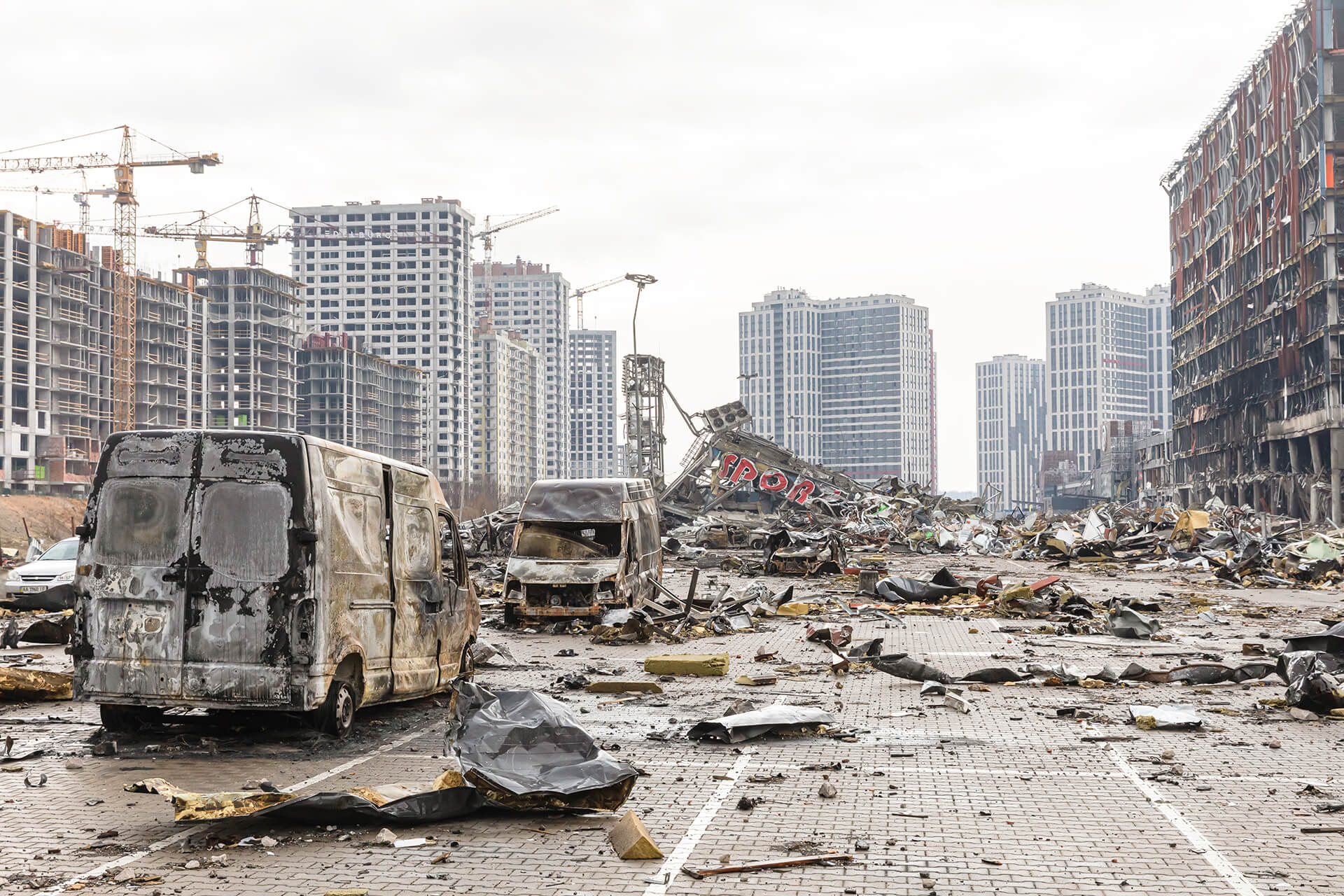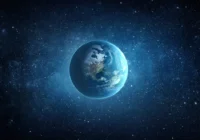Fair Observer’s new feature FO° Insights makes sense of issues in the news. We pose a series of rapidfire questions to the best of our more than 2,500 contributors from over 90 countries who share their ideas, insights and perspectives on an important issue.
Even as The Economist is writing about “the coming food catastrophe,” the Bank of England Governor Andrew Bailey is admitting to be unable to stop UK inflation hitting 10%, and the US Bureau of Labor Statistics is recording 8.3% inflation for April, Editor-in-Chief Atul Singh looks under the surface and around the corner to make sense of what to expect in the global economy.
Atul Singh on the Economic Consequences of Russia-Ukraine War
In this episode of FO° Insights, Atul Singh makes sense of what is going on. You can watch the video above and/or read what he has to say below. The transcript has been lightly edited for clarity.
What are the economic consequences of the Russia-Ukraine war?
Atul Singh: The consequences are disastrous. The war could not have come at a worse time. We had a global financial crisis in 2007-08. After that, central banks followed loose monetary policy with quantitative easing. And then of course governments had to be fiscally loose to combat a pandemic.
Now, the war gives a supply-side shock, which means energy economics is back, food economics is back, and of course, commodities economics is back.
Energy economics? Very simply, the price of oil and gas has shot up. Inflation is ripping through the world and even rich countries are suffering.
Food? Well, we read in The Economist, no less, about an impending food catastrophe — 250 million people are at risk of famine.
Commodities? Russia is the biggest exporter of natural gas, the second biggest of oil and the third biggest of coal. About 25% of battery-grade nickel comes from Russia. In fact, 50% of USA’s uranium imports come from Russia and this is not to mention copper and palladium and whatnot.
So, there’s a real supply-side shock of monumental proportions. Add to that ships not leaving the Black Sea, and you can see this is going to end very badly.
Who will suffer most?
Atul Singh: It will be people who need food who will suffer the most. The first requirement to live is of course water and then it is food. It is important to remember that Russia and Ukraine supply 28% of the world’s wheat, 29% of the world’s barley, a lot of the maize and, of course, 75% of sunflower oil.
Egypt relies for 86% of its imports on Russian and Ukrainian wheat and 30% of Egypt’s caloric intake is bread. So it’s a case of bread and oil. With oil prices rising, food prices get a double kicker because costs of production in places like the US, India and China goes up.
India is having an exceptionally hot summer, so its supply is going to go down. China has had delayed rains. So, we have falling harvests combined with rising food and oil prices to make a perfect storm.
And of course, let’s not forget Sub-Saharan Africa where 40% of the family budget goes on food. Everyone will suffer and the big victims are going to be Libya, Tunisia, Egypt, of course, I’ve mentioned them before, and Lebanon, which after the explosion in 2020 can just store a month of food. So rocky times ahead.
What are the results of sanctions?
Atul Singh: Well, the obvious results of sanctions are really-damaged Russian economy. Russia has been shut out of the global financial system. Russian factories are finding it difficult to find spares to keep running. Big brands have pulled out of Russia. Law firms have left Russia. Coca Cola is out, McDonald’s is out and so on and so forth now.
The damage to the Russian economy is obvious. Damage to the Ukrainian economy is obvious too. There are many, many, many reports talking about how the Ukrainian economy is teetering on the brink of collapse, and perhaps could not sustain a longer war. But apart from Russian and Ukraine there are second order and third order effects.
The results of sanctions are loss of profits for a lot of European companies. German companies are suffering. Obviously, French ones are suffering. And then of course, Chinese companies that operate in the West cannot operate in Russia, at least with the same freedom as they did before. So can’t Indian companies.
There is, of course, the threat of counter sanctions. What if Russia says this is a game two can play? We switch off the supply of nickel. Goodbye to your green economics. Goodbye to your clean cars. The results of sanctions are manifold.
Then there is the question of the global financial system. Assets of Russia’s central bank have been frozen and Russia has been shut out of SWIFT. What do the other countries such as Saudi Arabia and China do in response?
Could there be a blowback from sanctions?
Atul Singh: Of course, there could and would be blowback. There are always unintended consequences to these things. Now. Russia could shut off supplies at nickel, palladium etc. Sanctions are a game two can play.
Saudi Arabia is worried. Not too long ago, a certain journalist was chopped up in Istanbul and sanctions against Russia could very well be used against the Saudis. It’s a good precedent. China isn’t too popular either in Washington or in European capitals these days. So talk of a petrol-yuan trade has emerged which challenges the dollar, talk of rupee-ruble trade has emerged and talk of renminbi-ruble trade has emerged.
With all these different countries starting to trade in their own correct currencies, this is possibly a challenge to the dollar. Also remember Russia has been kicked out of SWIFT, the global financial transactions and payments network. SWIFT is expensive. Certainly it’s secure, but this could push for the development of an alternative system that is cheaper and works around SWIFT. The world might be about to get very interesting.
Will the Russian economy hold or will the dollar dominate?
Atul Singh: Well, one view is it’s curtains for Russia. Inflation is going to cause the collapse of the regime, just as a combination of economic meltdown and military defeat ended the Tsars in 1917. Another view is Russia as a fortress economy. It has food, it has energy and it’ll survive.
If you take the latter point of view, you can say that the ruble has recovered. The Russians have linked it to gold. Russia has the fifth highest gold reserves, and the Russian economy is doing better than expected.
The jury is still out as to what will transpire but Russia is under acute stress and the test of the pudding is in the eating. Let’s see how Russia fares by the end of this year.
Will the dollar dominate? The answer is yes, but the dollar will weaken because sanctions have made big economies like India and China very nervous and these are economies with high growth rates. These are economies that want cut-price oil as oil prices go up. These countries don’t have natural energy resources. So increasingly they are going to try and work around western sanctions through backroom deals.
Also, some sort of a parallel financial system will emerge. We will be seeing a more fragmented world, economically, at the end of this conflict, thanks to the pressures, the inflationary pressures, that the conflict has unleashed around the world.
The views expressed in this article are the author’s own and do not necessarily reflect Fair Observer’s editorial policy.
Support Fair Observer
We rely on your support for our independence, diversity and quality.
For more than 10 years, Fair Observer has been free, fair and independent. No billionaire owns us, no advertisers control us. We are a reader-supported nonprofit. Unlike many other publications, we keep our content free for readers regardless of where they live or whether they can afford to pay. We have no paywalls and no ads.
In the post-truth era of fake news, echo chambers and filter bubbles, we publish a plurality of perspectives from around the world. Anyone can publish with us, but everyone goes through a rigorous editorial process. So, you get fact-checked, well-reasoned content instead of noise.
We publish 2,500+ voices from 90+ countries. We also conduct education and training programs
on subjects ranging from digital media and journalism to writing and critical thinking. This
doesn’t come cheap. Servers, editors, trainers and web developers cost
money.
Please consider supporting us on a regular basis as a recurring donor or a
sustaining member.
Will you support FO’s journalism?
We rely on your support for our independence, diversity and quality.







Comment